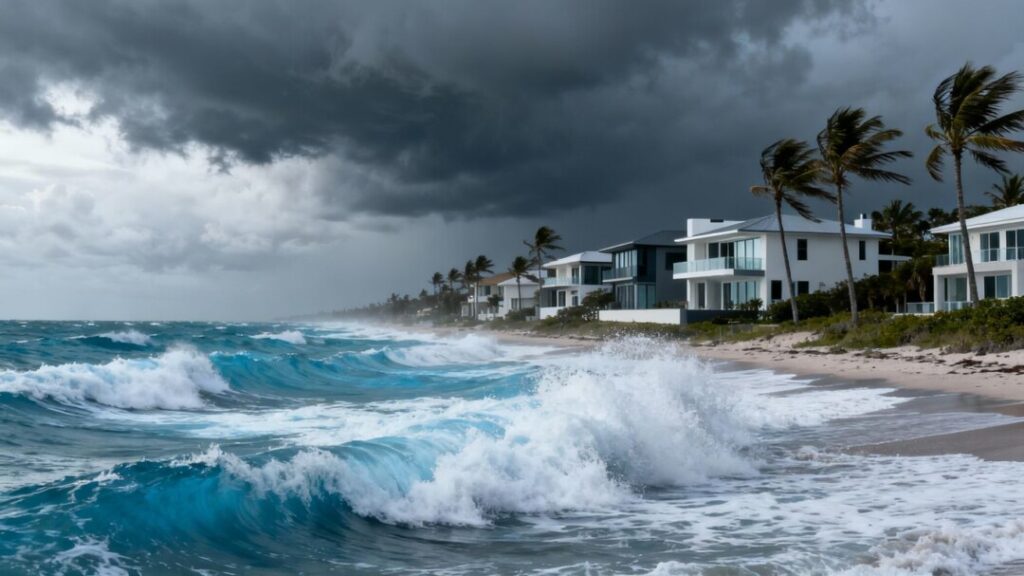Florida’s once-booming real estate market is now facing a noticeable slowdown as 2025 unfolds. Recent data reveals declining home prices across key cities, rising inventory, affordability pressures, and major concerns about insurance and climate risks. The coming year could see the market shift sharply toward buyers, with certain regions more vulnerable than others.
Key Takeaways
- Florida home prices are declining for the fifth straight month—a clear signal of a market correction.
- Areas like Cape Coral and Lakeland are at heightened risk for further price drops in 2025.
- High insurance costs, overvalued homes, and affordability issues weigh heavily on buyers and sellers.
- Most experts predict a significant downturn, not an all-out crash, for the state’s housing market.
Cooling Market Trends Take Center Stage
While home prices surged in Florida during recent years, data from mid-2025 paints a different picture. Statewide, median sales prices for single-family homes have dropped by 3.5% since 2024, while condos and townhouses fell nearly 8%. July 2025 marked the fifth straight month of declines.
Inventory is also rising: the supply of single-family homes hit 5.4 months, reaching a much more balanced market. Sellers no longer have the upper hand, and buyers now benefit from a wider range of choices and more negotiating power.
Risk Hotspots: Cape Coral and Lakeland in Focus
Not all regions are affected equally. Cape Coral has already seen home prices plummet 7.7%, with sales volumes dropping and houses spending more time on the market. Lakeland now ranks as the second riskiest city in the US for a potential housing market correction, largely due to rapid price growth during the pandemic and now-increasing inventory levels.
| Market | Price Drop (2025) | Avg Days on Market | Inventory Trend |
|---|---|---|---|
| Cape Coral | -7.7% | Up to 76 days | Excess supply, rising |
| Lakeland | N/A (downtrend) | N/A | Rising |
The Insurance and Affordability Squeeze
Affordability has become a crisis. Homeowners across Florida face insurance premium jumps as high as 70% since 2020. Mortgage rates remain elevated, cutting into what buyers can afford, while high property prices and taxes remain a challenge. This triple threat is dampening demand, triggering more sellers to list homes at realistic prices—or risk lengthy waits.
Outlook: Correction, Not Collapse
Experts agree that while Florida’s real estate market isn’t headed for the 2008-style crash, 2025 will be a year of recalibration. Price swings are expected to be most severe in cities that experienced the fastest pandemic-era booms, while most of the state will settle into more moderate declines or stabilization. Demand remains, particularly due to in-state migration, but the wild seller’s market is over.
What Buyers and Sellers Should Do
For Buyers:
- Use your new leverage to negotiate and shop carefully.
- Factor higher insurance premiums into your true monthly costs.
- Consider waiting if you’re not finding your ideal deal, but don’t expect a total market meltdown.
For Sellers:
- Set competitive, realistic listing prices based on current data.
- Highlight property strengths and consider modest upgrades.
- Be patient and flexible as the market transitions.
Florida’s real estate market in 2025 is best approached with caution, research, and a long-term mindset. The market’s new normal is here: measured, balanced, and more competitive for everyone involved.
Sources
- Is the Florida Housing Market on the Edge of a Crash or Downturn?, Norada Real Estate Investments.
- Is the Florida Housing Market on the Verge of Collapse or a Crash?, Norada Real Estate Investments.
- Florida Housing Prices Drop for the Fifth Consecutive Month in 2025, Norada Real Estate Investments.
- Why is Cape Coral Housing Market in Florida Doomed to Crash in 2025?, Norada Real Estate Investments.
- Lakeland, Florida is Second Most Risky Housing Market Poised for a Crash, Norada Real Estate Investments.


